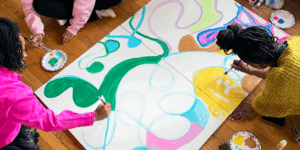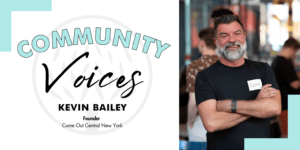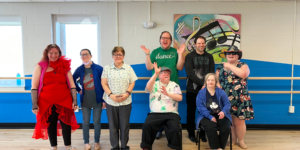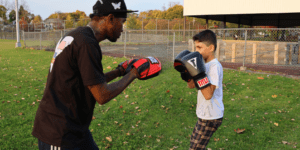Reflections: Our Personal & Professional Efforts Toward Racial Equity is a monthly blog. Each month, a member of our staff will reflect on what they are doing either personally or professionally to improve diversity, equity and inclusion in our work. View more
By making college affordable for students of the Syracuse City School District, Say Yes Syracuse (Say Yes) is committed to creating real opportunity with real outcomes for all children. When we open doors to a quality education after high school for all, we ensure that everyone can participate in education that equips them to meet the demands of a rapidly changing labor market, engage more fully in their communities, and live meaningful and productive lives.
Why programs like Say Yes are necessary requires taking a hard look at the equity gaps in public education, including the ways schools are funded and receive resources. These gaps in education cut across socio-economic status, which in most cases is rooted in race.
Race quite simply was created to assign socio-economic net worth based on the complexion of one’s skin. There is no scientific evidence to support a genetic difference in the human species based on skin color. Rather, the difference in skin complexion was a result of the human body evolving to adjust to environmental conditions over centuries. When discussing racism, some often mistake it as an attitude or belief system that a race is inferior, or conversely that one race is superior. This, in my opinion, is a misinterpretation. That explanation based on attitude or belief system reflects only that of a bigot. If race is the assignment of socio-economic net worth based on the complexion of one’s skin, then racism is a capitalist systemic structure designed to advance one race economically while also inhibiting other races emotionally and socially. By that definition, people who are white benefit from racist systems (even if their attitudes and beliefs are NOT bigoted) that afford them opportunities to advance economically, while limiting those opportunities among other races.
With this in mind, education in some ways is operating exactly as designed – to preserve racial privilege. It’s been proven that education is the best indicator of income, and the most effective determining factor of quality of life. As a result, when education systems in areas of high income get funded well, and gain access to resources that enhance academics, privilege is reproduced for the next generation. These areas of high income are largely communities densely populated by people who are white, due to redlining and discriminatory practices in lending, housing and economic development. Location should not dictate opportunity, yet that is precisely what has occurred over the history of our nation due to these racist policies.
So how can we reverse the effects of racism in education? There are many domestic, societal and environmental factors (including racism) that make up a student’s living situation. To the extent that those factors become a barrier to a student’s attendance and academic performance, an intervention that can mitigate those factors will increase a student’s chances of moving through the education system successfully, and utilizing its resources adequately.
Here in Syracuse, our community stakeholders have proactively engineered a system by which any student can get the support needed to navigate the education map. With the help of the national Say Yes to Education Foundation and multiple community partners, Syracuse has a last-dollar tuition guarantee scholarship available to all students in the Syracuse City School District. By making college affordable, the community has enhanced the opportunity for students and families to utilize education as a means to economic prosperity. With a now fully funded endowment that is administered and governed by the Community Foundation, generations of Syracuse students will be able to seize the opportunity to continue their education and enhance their quality of their life. While this is not the ultimate answer to racism in Central New York (let alone the education system), Say Yes Syracuse is a local solution that helps ensure all residents have the resources and opportunity needed to succeed. Learn more about Say Yes Syracuse.









